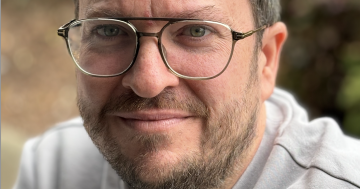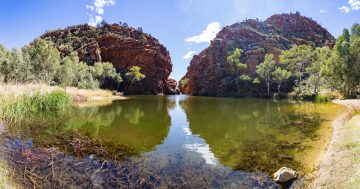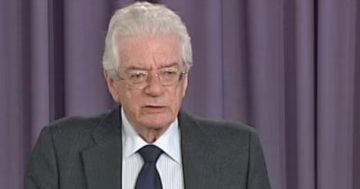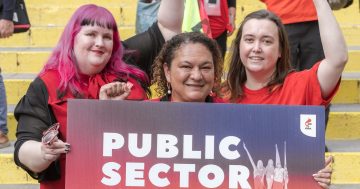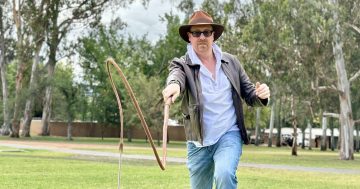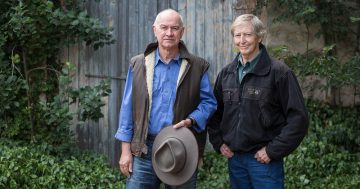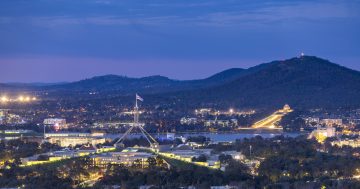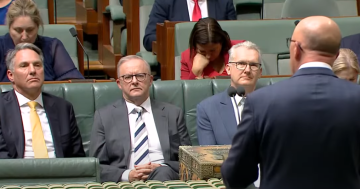
Former editor in chief at a US Government Executive group, * Tom Shoop reports that US actor Tom Hanks believed he’d make a great Public Servant……
He is one of America’s all-time favorite actors, with enough awards and honours to fill a warehouse.
His star power is nearly unmatched, and he has banked more hit films than just about anyone in show business.
Yet Tom Hanks says the job he would be best suited for is in the Federal Bureaucracy.
In a May interview with the Atlantic, Hanks said the late writer and filmmaker Nora Ephron “said something that was really true: I would have made the greatest park ranger in the history of the national parks. I would have loved the uniform. I would have run the campfire talks. I would have known the history of it all, and I would have weaved the perfect story … I would have loved going to work.”
Hanks may have a somewhat romanticised view of a ranger’s job.
Josh Scheffler, a ranger at Bighorn Canyon National Recreation Area in Montana and Wyoming, told USA Today last year that in his line of work, “you could be doing plumbing one day and working with horses the next, building a structure the next.”
Important stuff, but not entirely a job of telling stories around the campfire.
The Park Service says its rangers must “have a visible and tangible desire to protect and promote our national parks and our natural and cultural history.”
Hanks would seem to fit that bill nicely. But the agency also notes that “some positions may require firearms proficiency, motor vehicle licensing, or the ability to operate watercraft.”
Park ranger isn’t the first federal position that Hanks dreamed of holding. As a child, he imagined himself as an astronaut.
“I would put a brick in the bottom of my pants and sit at the bottom of the pool breathing through a garden hose and kind of, like, float,” he said on ABC’s Good Morning America in 2002.
“And I would have these little plastic tools. [I’d] take apart the pool ladder and put it back together again, because I wanted to be doing a service in zero gravity of outer space.”
The closest Hanks would come to that would be playing astronaut and mission commander Jim Lovell in 1995’s Apollo 13, one of his best-known roles. But that’s not the only character Hanks has played who drew a paycheck from the taxpayers.
He’s portrayed plenty of other Government employees on the silver screen: Peace Corps member, Volunteers (1985); Los Angeles Police Department officer, Dragnet (1987); Police investigator, Turner and Hooch (1989); Army soldier, Forrest Gump (1994); Army officer, Saving Private Ryan (1998); Prison guard, The Green Mile (1999); FBI agent Carl Hanratty, Catch Me If You Can (2002); Congressman, Charlie Wilson’s War (2007); Sheriff, Toy Story 1-4 (1995-2019); and Navy Commander Ernest Krause, Greyhound (2020).
And that doesn’t count characters who were veterans but weren’t on active duty in the time frame of the movie, or “Colonel” Tom Parker, Elvis Presley’s manager.
Hanks seems to enjoy playing characters in and around government operations.
But despite all his fictional experience, and his fascination with certain federal jobs, politics doesn’t interest him—even though he’s a direct descendant of Abraham Lincoln’s mother. So don’t expect him to join the ranks of celebrities who contemplate a run for elected office.
In 2018, he said president of the United States is “one of the crappiest jobs you could possibly have in the world.”
The actor even wisecracked about his wholesome reputation in comparison to that of the federal government in 2007’s The Simpsons Movie.
“Hello. I’m Tom Hanks. The U.S. government has lost its credibility, so it’s borrowing some of mine,” intones the actor, playing an animated version of himself.
“This is Tom Hanks saying, if you’re going to pick a government to trust, why not this one?”
That earned Hanks a bit of mockery in 2022, when he actually lent his voice and credibility to a video touting the Biden administration’s early accomplishments.
* Tom Shoop is the former executive vice president and editor in chief at the Government Executive Media Group, where he oversaw editorial operations at Government. He started as editor of Government Executive magazine in 1989 and served as editor in chief from 2007 to 2021.
The article first appeared in the US Government Executive magazine.


